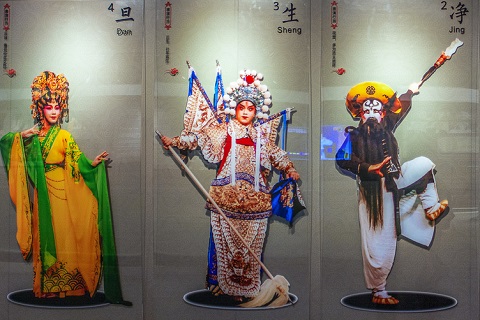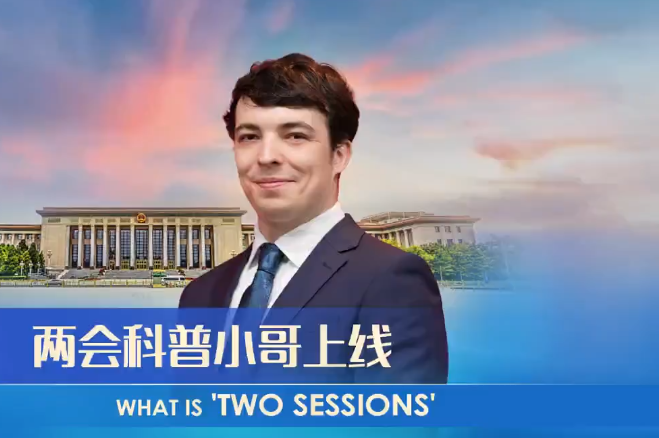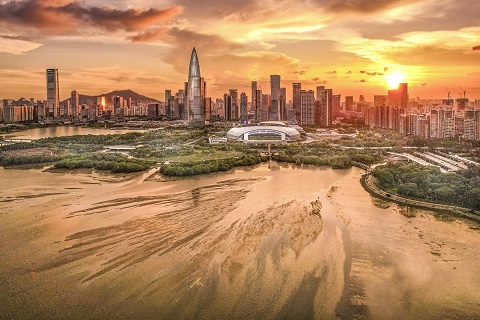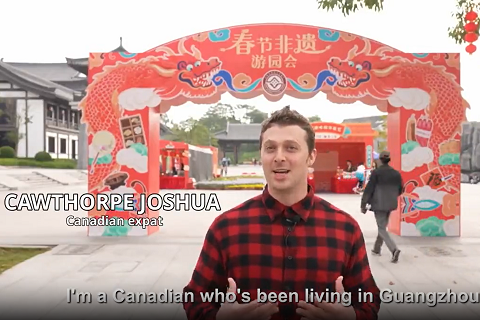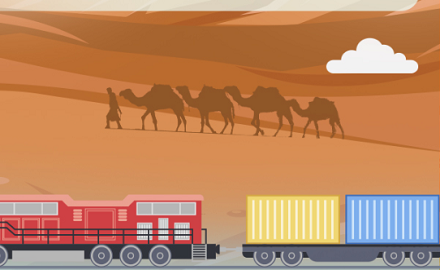Plastics producer to establish major base in Saudi Arabia
Pan-Asia Pet Resin (Guangzhou) is set to construct a chemical fiber production base in Saudi Arabia with an annual output value of $4.8 billion. The base is expected to improve the country's capacity to produce its own plastics and fiber.
"Saudi Arabia mainly imports these products from East Asia, which costs time and freight expenses," said Lin Wencai, vice-president of the company. "When the project is completed, the country may no longer rely on imports, and may even be able to export these products."
As a subsidiary of Singapore-listed enterprise Full Apex (Holdings), whose plastic bottle products make up 20 percent of the domestic market, Pan-Asia Pet Resin has established cooperation with major beverage brands, including Coca-Cola, Pepsi and Watsons.
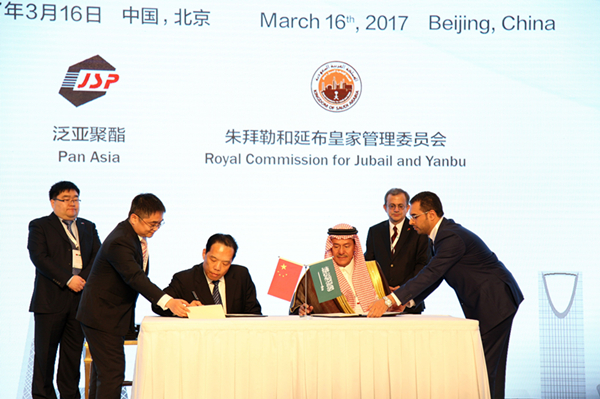
Guan Lingxiang, chairman of Pan-Asia Pet Resin (Guangzhou), signs an agreement with an executive manager of the Royal Commission for Jubail and Yanbu from Saudi Arabia in Beijing in March. [Photo provided to China Daily]
In November 2016, the company signed a memorandum of understanding with Saudi Arabia's National Industrial Cluster Development Program to develop a chemical engineering project.
By 2021 annual production of PET, a major material in plastics, will reach 500,000 metric tons, and production of PTA, which is used to produce fiber, will reach 1.25 million tons, Lin said.
The company would then establish subsidiaries to produce downstream products such as engineered plastics, thin film and polyester fiber, Lin said.
The project is also expected to provide 3,000 jobs for local people, he added.
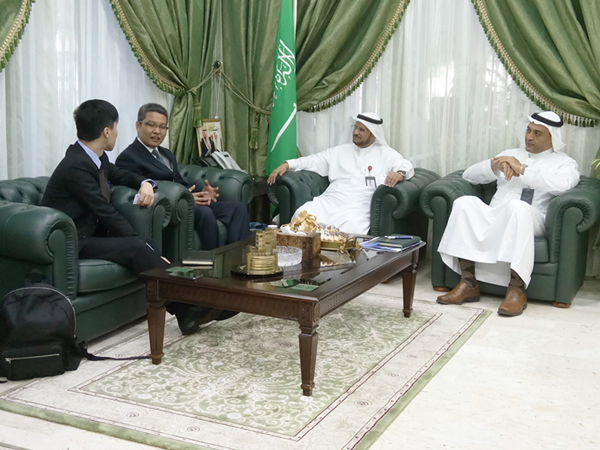
Lin Wencai (second left), vice-president of Pan-Asia Pet Resin (Guangzhou), talks about the chemical engineering project with the Royal Commission for Jubail and Yanbu from Saudi Arabia. [Photo provided to China Daily]
According to Lin, the project with Saudi Arabia was one of the major projects approved by the National Development and Reform Commission under the government's drive for domestic companies to do business in countries along the Belt and Road.
In 2016 Saudi Arabia announced the Saudi Vision 2030 growth strategy to diversify its heavily oil-dependent economy. The plan includes encouraging foreign direct investment and increasing the economic contribution of private companies.
Lin said the local government gave them many preferential policies for financing, tax, rent and supply of resources.
The company's production base will be built in Jazan Economic City in the Jizan province of Saudi Arabia, near Saudi Aramco, the world's largest oil producer, whose p-Xylene will be carried directly to the company through direct pipelines with an annual discount of $180 million, Lin said.
"In general, the cost of raw materials would be decreased by 20 percent," Lin said. "The project is expected to break even after seven years, and we predict a reasonable profit."
Jizan, which is near the Red Sea, is close to the main eastern and western sea trade routes to the Middle East, North Africa, Europe and Central Asia.
The region's geographical location and available ports and engineering facilities help companies to establish themselves and sell their products, Lin said.
"We considered the elements of market, policies and risk when investing in Saudi Arabia," Guan Lingxiang, chairman of Pan-Asia Pet Resin (Guangzhou), said. "It's a commercial activity in accordance with a historic opportunity."
(China Daily 05/15/2017 page32)
Copyright © Foreign Affairs Office of Guangzhou Municipal Government,
Hong Kong and Macao Affairs Office of Guangzhou Municipal Government All rights reserved.
Presented by China Daily.
京ICP备13028878号-28





